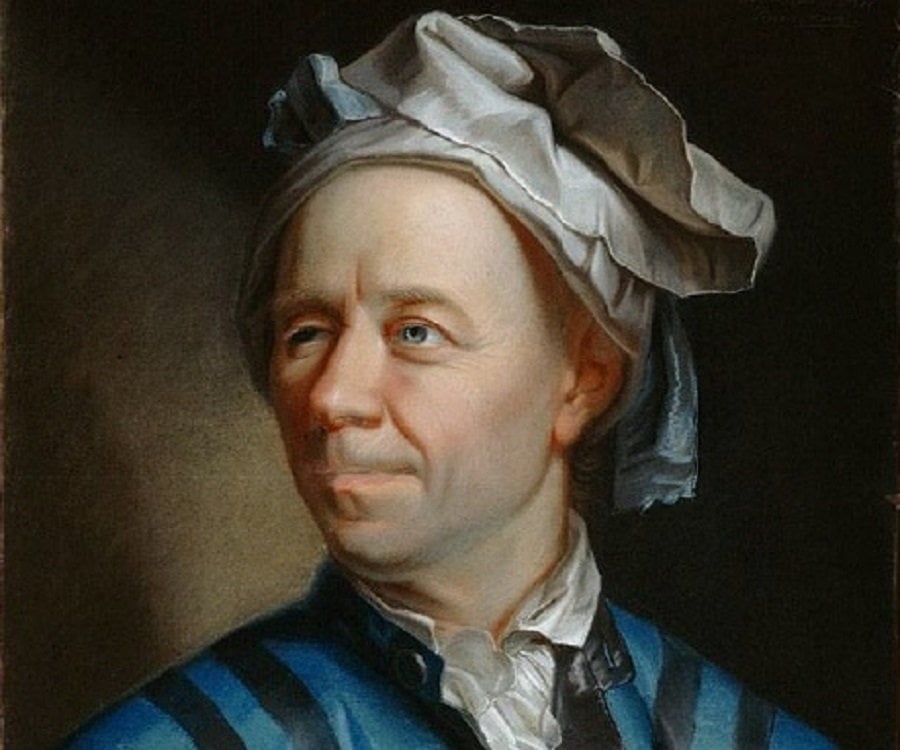How is a spectrum supposed to not have a total ordering? To me saying sth is a spectrum always invokes an image of being able to map to/represent the property as an interval (unbounded or bounded) which should always give it a total ordering right?
- 25 Posts
- 24 Comments

 2·6 months ago
2·6 months agoThanks for the detailed explanation on the sysreq keys & when & how to use them for unlocking a frozen system :D. Also for the
systemctlbit because i wasnt even sure what to do if i had gotten to a console lol.

 3·6 months ago
3·6 months agoIt’s fixed in 6.8.10 and 6.9 if you have the ability to upgrade to those.
Honestly idk how id even begin to do that lol, and id also maybe rather not start my first week of linux use by immediately trying to change the kernel version on my own XD (either down or up). I did hear about an issue with rdr2 and kernel 6.8.9 from a reddit post which i found through someone writing about problems with the game on its protondb page. But i thought i was fine as my game worked normally until i encountered the crash & because the reddit and protondb post say its solved by enabling rebar which (iirc) i already have.
However idk if that reddit posts issue is the same/related to the one you linked. Since the rest of the game and my system seem to be mostly fine i think ill either just not play the game or specifically avoid the cutscene when i do (its in an optional quest luckily). And then ill maybe return to it after the updated kernel arrives on fedora to see if it solves the crash or not.

 2·6 months ago
2·6 months agoThanks for the link! I managed to set up sysrq with it, which might have saved me from reinstalling steam when the crash occurred the second time (see the update in my post).
I feel like this isn’t quite fair to math, most of these can apply to school math (when taught in a very bad way) but not even always there imo.
Its true that math notation generally doesn’t give things very descriptive names, but most of the time, depending on where you are learning and what you are learning, symbols for variables/functions do hint at what the object is supposed to be E.g.: When working in linear algebra capital letters (especially
A,B,C,Das well asM) are generally Matrices,v,w,uare usually vectors andV,Ware vector spaces. Along with conventions that are largely independent of the specific math you are doing, liken,m,kusually being integers,iorjbeing indices,fandgbeing functions andx,y,zbeing unknowns.Also math statements should be given comments too. But usually this function is served by the text around the equations or the commentary given along side them, so its not a direct part of the symbolic writing itself (unlike comments being a direct part of source code). And when a long symbolic expression isn’t broken up or given much commentary that is usually an implicit sign that it should be easy/quick for the reader to understand/derive based on previously learned material.
Finally there’s also the Problem with having to manipulate the symbols. In Code you just write it and then the computer has to deal with it (and it doesn’t care how verbose you made a variable name). But in math you are generally expected to work with your symbolic expressions and manipulate them. And its very cumbersome to keep having to rewrite multi-letter names every time you manipulate an expression. Additionally math is still generally worked on in paper first, and then transferred into a digital/printed format second, so you can’t just copy + paste or rely on auto completion to move long variable names around, like you might when coding.
Where is this from?
I love seeing conspiracy/crank types do anything with math.
I’m still curious as to whether there’s an easier way to do this than simply updating the global position, by script, to match the pose’s.
I’m not sure if this is what you want but maybe you could use the BoneAttachment3D Node?

 3·1 year ago
3·1 year agoWow thanks for the quick and detailed answer :D. Ive used a variation of the autoload script you provided and it works great.
on my machine it corresponds to the window order in the taskbar.
I tried that at first too but its not very reliable on my machine and it seem they can be in any order on my taskbar.
(I actually went back and checked now that i can easily tell which one it is and it appears like it is often, but not always, the one last in my taskbar (out of 3 open instances). ~30%-50% of the time it can also be the second to last one and i recall it even being the first one in the taskbar at least once)
For anyone who wants more, there is !possums@possumpat.io and !opossums@lemmy.world
I’m also not quite sure of how it works yet but at least the first part is correct i think. The full link worked for you because its to the instance your account is on. When i use that link (on the desktop website) i get redirected to that site but i don’t have an account there so i cant interact with it on this account. Similarly: if I link https://lemmy.blahaj.zone/c/antiquememesroadshow@lemmy.world it will work for me without problems but you should see a website where you aren’t logged in (at least using the website, mobile apps might handle it differently i think).
(Although i have no idea why the exclamation mark link didn’t work for you, it did work for me at least. Maybe its the app you are using? I remember that for example some old jerboa version had problems with the exclamation mark links where it would just crash when you tried to use them.)
Ok so it seems like they don’t commute? I asked the question in part because i wanted to do something like:
const base_transform : Transform3D = <some transform> func get_base_transform(node : Node3D) -> Transform3D: return node.transform * base_transform func set_base_transform(node : Node3D, transform : Transform3D) -> void: node.transform = base_transform.affine_inverse() * node.transformand i wanted to be sure that if i do
set_base_transform(some_node, some_transform)i’d be guaranteed to get thatget_base_transform(some_node) == some_transformafterwards. But when i tried it the above code did not work out, at least i didnt get the result i expected. But when i flipped it so thatset_base_transformdidnode.transform = node.transform * base_transform.affine_inverse()instead it did work out. Its still not hard proof though, maybe something else was messed up the first time, or it only looks like it works now and i’ll discover the transform still isn’t what i wanted it to be. Or they do commute but only under some constriction like no scale on any axis or something and i just happened to fulfill it with all the ones i used in my test.So it would still be good to know for sure whether/when
Transform3D’s commute.EDIT: I accidentally wrote the first line wrong, it said that they do commute. When actually the experience i had with it working only after both functions did their multiplications in a compatible order should indicate that they don’t commute.
I can kind of see what you mean. Maybe this more “natural”/less staged picture is less fake looking? (source)


 1·1 year ago
1·1 year ago(Maybe something like a signal that fires once then disconnects?)
Im not sure if this is exactly what you mean or if im telling you things you already know 😅, but yes, you can mark signals as “Oneshot” where they disconnect themselves after firing once in the advanced options in the signal connect menu.

Or alternatively if you connect them via code you can use the corresponding flag
CONNECT_ONE_SHOTin the connect function
mayb having to write a tool script in godot to replace specially named empties form blender with instances of gameplay related scenes or sth.
Why did I never think of that. My level designer is gonna be so excited if I ever remember to write something like that myself.
I think this even has some direct support from Godot to automate it. The EditorScenePostImport class is supposed to be used for stuff like this i believe but im not entirely sure (i haven’t tried or had to try anything like this yet never mind automate it, i just found this while looking through the documentation on 3D scene importing).
I love fistful of frags.
Ayy same, kinda XD. I loved it for a long time but the updates (for a long time now) are just really odd and I feel like the game has massive potential that it just keeps not tapping into properly. Nothing else like it really exists, the closest might be Hunt: Showdown but that is also a Extraction Shooter/Battle Royal so still really different.
For map making you might be interested in Qodot.
Ive seen it before but while it is probably easier im not sure if its a good idea. Fistful of Frags is horrendously outdated for the most part so i at least a bit want to try to modernise it. And going from blocky HL2 style maps with hammer to even blockier Quake style maps with Trenchbroom feels like a downgrade lmao. (But to be fair i haven tried it yet so i might be wrong there).
I think ill try with blender for now. E.g. enabling snapping and quad view gets blender closer to hammer in feeling already (at least from what i remember from using hammer a bit forever ago). Otherwise i hope i can make it somewhat usable using import flags on blender objects and mayb having to write a tool script in godot to replace specially named empties form blender with instances of gameplay related scenes or sth.
What are you working on btw…? I assume it’s some kind of shooter and cock is in reference to cocking a gun…
Nothing concrete, my dream would be being able to recreate/mimic Fistful of Frags in Godot. The reality is that i keep starting new projects trying to recreate parts of it (omitting stuff that’s hard and i know nothing about yet like multiplayer, animations, modeling etc.).
This specific piece of code is from a current attempt where I’m trying to mimic the games movement and shooting closely enough to create a small shooting gallery like thing. And then use that to learn more about how to (possibly) use Blender as a map editor for it.
Is it dynamically typed tho? Its missing the return type of the function (which i left out because its only there to be called from a signal so it doesnt matter too much & because the Godot editor didn’t bother adding it when it inserted the function to receive the signal).
But otherwise its already statically typed right? (
COCKis a constant in the script that i did give a type andstreamandplay()are part of theAudioStreamPlayer3Dnode)
It has just now occurred to me that maybe i should only have given a cookie to the first person that guessed it, ooops 😅.






Ig thats where most of my confusion comes from, to me saying sth is a “spectrum” always evokes sth along the lines of
gay <--------------------> straight(ie one dimensional) with things mapping into this interval. But ig if you also include more than one axis in your meaning of “spectrum” there wouldn’t be as straight forward of an ordering for any given “spectrum”. + Like @saigot@lemmy.ca said technically even the 1 dimensional spectrum can have more than one order and the “obvious” one is just obvious because we are used to it from another context not because its specifically relevant to this situation.